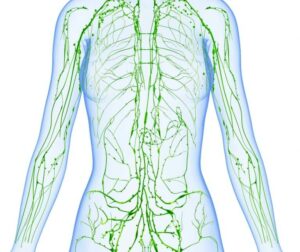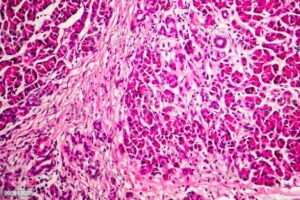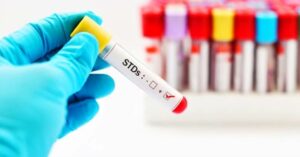Swollen lymph nodes can be your body’s way of letting you know something is wrong. Check out everything you need about swollen lymph nodes in the groin.
Your lymphatic system is probably the most essential body part you know nothing about. After all, as long as it works properly, it flies under the radar. It keeps you healthy and your body working in sync. It can also be one of the first indicators that something is wrong, and you must seek medical attention.
Table of Contents
ToggleYour Lymphatic System

Many people may have heard the term lymph nodes,’ especially regarding a cancer diagnosis, but are unsure of their role in the body. Lymph nodes are an essential part of your lymphatic system. The lymphatic system plays a vital role in supporting your immune system.
The lymphatic system includes organs, lymph vessels, fluid, and nodes that work together to eliminate waste, fluid, and bacteria from your body’s tissue and put nutrients into the bloodstream.
Each part of the lymphatic system is essential in supporting your health.
The Lymphatic Organs
There are both primary and secondary lymphatic organs within the lymphatic system. The primary organs include bone marrow and the thymus.
Bone marrow: Produces white blood cells called lymphocytes, which fight off disease and infection.
Thymus: Produces white blood cells called T-lymphocytes, which help the immune system fight off infection and illness.
The secondary organs include the spleen and lymph nodes.
Lymph nodes: Act as a filter to remove foreign particles and cancer cells.
Spleen: The spleen produces lymphocytes to fight off antigens and removes pathogens and old red blood cells.
Lymph Vessels

They interconnect within the body into pathways that slowly guide the lymph fluid from the body’s tissue walls and into the chest, which will absorb into the bloodstream. Before the fluid can enter the bloodstream, it must pass through a series of filters called lymph nodes.
The lymph vessels run along the body like your veins, although even the giant lymph vessel is smaller than your most prominent vein. Along the vessels, nodes are present at different intervals, like beads on a chain. The fluid is often slowly filtered through several nodes before reaching its final destination.
Lymph Fluid
Lymph fluid, also known as lymph, packs a powerful punch for your immune system. The lymph performs the critical job of cleaning your body’s tissues. The fluid picks up bacteria and waste products, which need removal by the lymph nodes, and contains White blood cells called lymphocytes.
There are two main types of lymphocytes:
- B lymphocytes (B cells): The role of these cells is to protect the body. It makes antibodies to protect you from viruses and bacteria.
- T lymphocytes (T cells): These cells’ role is to boost the activity of other immune cells while destroying germs and abnormal cells.
The lymph fluid has a white hue due to the presence of fatty acids and cholesterol (fat products). The lymph fluid moves slowly through the lymphatic vessels removing impurities and carrying nutrients.
Lymph Nodes

The role of the lymph nodes is to act as a filter for the lymph fluid. You have approximately 600 lymph nodes throughout your body. Some are close to the skin; you can feel them when swollen. Others bury deep within the body.
Lymph nodes intermittently appear on the lymph vessels, much like beads on a string. They are often in groups. Lymph nodes are small, like pieces of lymphatic tissue, usually about .5 to 1cm.
Viruses, bacteria, and cancer cells break down when the lymph fluid enters the node. The nodes can do this because they contain immune cells that can slowly break down infection in the body.
Read More: Parotid Gland Swelling: Causes, Symptoms and Treatments
Why Do Lymph Nodes in the Groin Swell?

When the inguinal lymph nodes are not swell, they are not easy to feel. There are areas in the body where nodes are very close to the skin’s surface. These areas include the neck, under the jaw, behind the ear, in the armpit, and around the groin.
With the more significant number of nodes and the proximity to the skin’s surface, these areas can often offer telltale signs that you have lymph nodes swelling.
During an examination, Doctors often feel your neck, jaw, and area around your ears. This is because your lymph nodes will often swell in the size your body is fighting an infection. When you are experiencing an upper respiratory infection, the lymph nodes in your neck, lymph nodes under the jaw, and ear may affect.
The swollen lymph nodes, along with the other symptoms you are experiencing, will give your doctor all the information they need to diagnose.
Lymph nodes become swollen when exposed to an infection, illness, or injury. Groups of nodes will often swell as they work together to help the body fight off the virus, fungal, or bacterial infection.
Lymph nodes can swell when the body’s immune system is compromised with an illness.
In some cases, an injury can cause the lymph nodes to swell. This may be because the injury prevents the lymph fluid from draining properly.
Read more: Swollen Lymph Nodes in the armpit
Symptoms of Swollen Lymph Nodes
When your lymph nodes are normal, they usually measure between .5 and 1 cm. When swollen, they can grow from the size of a pea to as large as a cherry.
With this swelling, you can also experience the following symptoms:
- The area may be tender to the touch. In some cases, movement can cause discomfort as well.
- The nodes may be swollen, hard, and enlarged.
- Fever
- Sweating and or night sweats
Possible Causes for Swollen Lymph Nodes in Groin

Since lymph nodes often swell due to an infection in the area, it would make sense that swollen lymph nodes in the groin result from an infection in the genitals. While the logic is sound, this is not always the case.
Swollen lymph nodes in the groin can occur due to a variety of reasons, including:
- Skin infections
- Sexually transmitted infections
- HIV
- Certain cancers, including leukemia and lymphoma
- Cervical cancer
Diagnosis a Swollen Lymph Node in Groin

Your doctor must perform a complete physical exam to properly diagnose a swollen lymph node in the groin. Moreover, your doctor will gently feel the area using their hands to determine if it is swollen or sensitive to touch.
He will also ask you about any other symptoms you have been experiencing to understand better what is causing the lymph node to swell.
Your doctor may run a blood test to look for signs of infection. In some cases, an x-ray or CT scan may be necessary to look for tumors or better understand the cause of infection.
A lymph node biopsy may also be necessary. This is done using a needle to remove a few cells from the lymph node for a histopathology test. This is a closer look at the tissue to see if it has been affected by cancer.
Read more: Swollen Lymph Nodes Behind The Ear
Treatment of Swollen Lymph Nodes in Groin

The treatment plan for swollen lymph nodes depends on the cause of the initial swelling. If the reason for swelling is a minor infection, the swelling can be resolved by antibiotics.
Also, if the reason is an injury to the area, you may need to rest to heal, or surgery may be recommended.
If you have cancer, the area will remain swollen until the cancer is resolved. Often cancer is treated with one or a combination of radiation, chemotherapy, and surgery.
Feel Better Faster
Did you know that lymph nodes can swell as a result of stress? Don’t wait to connect with a doctor about your health concerns. With the Your Doctors Online app, you can chat with a North American doctor 24 hours a day, seven days a week. Don’t wait for an appointment. Connect right now and feel better faster.
When to Speak to a Doctor
When taking a proactive approach to your health, it is essential to know what is normal for you so that you can report any changes to your doctor. Swollen lymph nodes, mainly located in the groin area, may indicate an issue with your health that needs your attention.
It is essential to connect with your doctor if you are experiencing the following symptoms:
- Swollen lymph nodes for more than 14 days
- Swollen lymph nodes that are enlarged and hard
- Persistent fever
- Dizziness
- Weight loss
- Fatigue
- Night Sweats
- Difficulty breathing
- Redness around the lymph node








